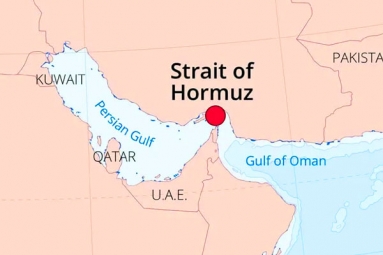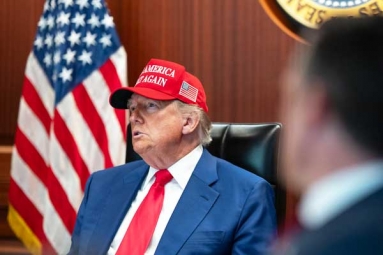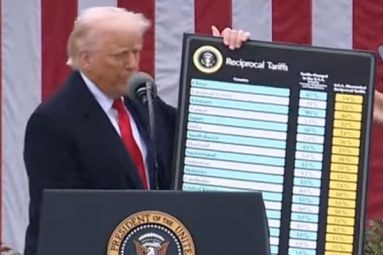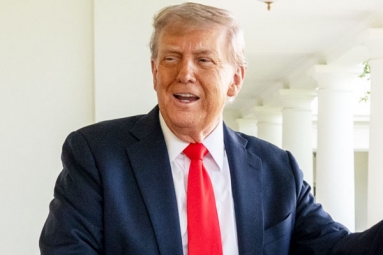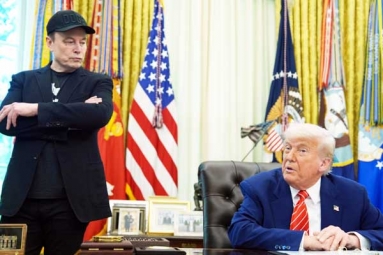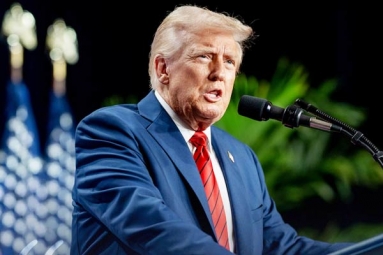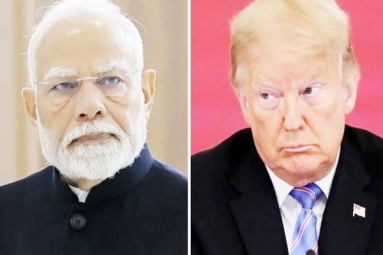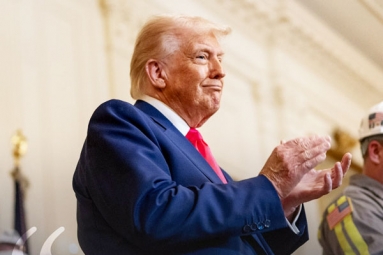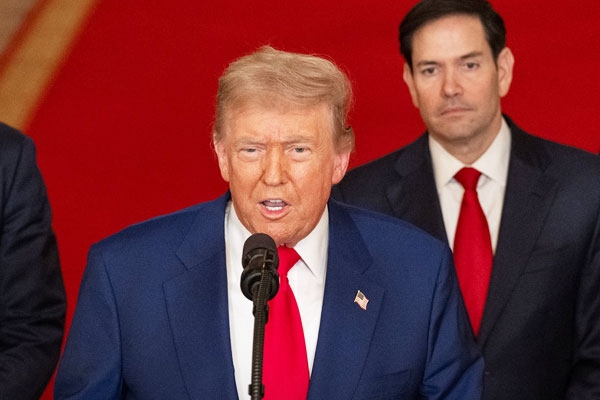
(Image source from: x.com/WhiteHouse)
On Sunday, US President Donald Trump raised doubts about the likelihood of a regime change in Iran after the US conducted military strikes on significant Iranian military targets over the weekend. “Although it’s not considered politically correct to refer to it as ‘Regime Change,’ if the existing Iranian regime cannot MAKE IRAN GREAT AGAIN, what would prevent a regime change?” Trump posted on his social media account. This came shortly after the US launched 30,000-pound bunker-buster bombs into the mountains near Iran's Fordow nuclear facility, prompting Tehran to assert that it would protect itself at any cost. Iran and Israel continued to exchange missile fire, with an explosion in western Iran reportedly resulting in the deaths of six military personnel, according to an Iranian news source. Earlier, Iranian missile strikes had caused injuries to numerous individuals and damaged buildings in Tel Aviv.
The US State Department instructed the family members of its personnel in Lebanon to evacuate and recommended that citizens in other parts of the region adopt a low profile or limit their travel. An alert from the US Department of Homeland Security indicated a “heightened threat environment in the United States.” Law enforcement agencies in major American cities increased their patrols and allocated more resources to safeguard religious, cultural, and diplomatic locations. Although Iran has yet to enact its threats of retaliation against the US by attacking American bases or attempting to disrupt global oil supplies, this situation could change.
While speaking in Istanbul, Iranian Foreign Minister Abbas Araqchi stated that Iran would contemplate all possible responses. He indicated that diplomatic discussions would not resume until after retaliation occurred, asserting, “The US has demonstrated a disregard for international law. They only comprehend threats and force.” In a televised statement, Trump characterized the military strikes as “a spectacular military success,” claiming that Iran’s primary nuclear enrichment facilities had been “completely and totally obliterated.”
However, officials within his administration provided more complex evaluations, and aside from some satellite images suggesting craters around the mountain sheltering Iran's underground facility at Fordow, no official assessment of the damage has been made public. The International Atomic Energy Agency, which oversees nuclear activities, reported no rise in off-site radiation levels following the US strikes. In a move viewed as Iran's strategic threat to the West, its parliament voted to consider closing the Strait of Hormuz. This vital waterway accounts for nearly a quarter of global oil shipments and is bordered by Iran, Oman, and the United Arab Emirates. According to Iran's Press TV, any closure of the strait would need the approval of the Supreme National Security Council, under the leadership of an appointee from Khamenei.
Ending the flow of Gulf oil by shutting the strait could lead to a dramatic increase in global oil prices, disrupt the world economy, and almost certainly provoke conflict with the US Navy's formidable Fifth Fleet, which is stationed in the Gulf and responsible for maintaining the strait’s accessibility. Experts in security have consistently cautioned that a vulnerable Iran might resort to alternative, unconventional methods of retaliation, including bombings or cyber warfare.





